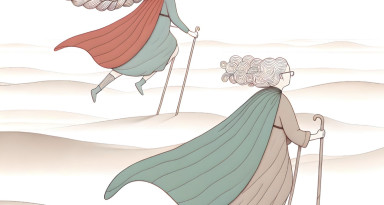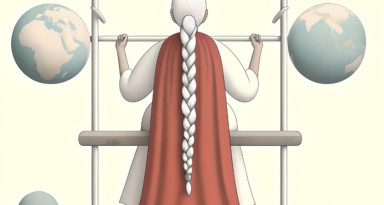“There is only one inborn erroneous notion… that we exist in order to be happy.”
- Arthur Schopenhauer
It’s not uncommon for people to think that flourishing is a destination, a place we can reach where our lives are in order and we (and the ones we love) are happy and balanced and at peace with our place in the world. For most of us, it’s slightly more complicated than that; rather than a destination, flourishing is more like a shadow we can’t quite make out, let alone grasp.
As we strive for this utopian state, life goes on in all its messy glory: bills, chores, work, errands, failures, financial worries, disappointment in ourselves and in others. Not to mention global concerns such as war and climate change. How are we to flourish amidst all this chaos and drudgery? Is flourishing but an illusion?
Schopenhauer described the notion of the “will to live” as an “animal force to endure, reproduce and flourish” – importantly, he believed this will to be irrational, a “blind incessant impulse without knowledge” that is the driving force of instinctive behaviours, keeping us in a state of endless insatiable striving. Schopenhauer thought we could, that we should, aim higher.
As is often the case, while I understand Schopenhauer’s position, I think he overreaches with his pessimism. Our will to live might be an animal force that drives our instinctive behaviours to endure and flourish. And it’s probable that flourishing is like a shadow that we can’t quite make out; a state that, for the most part, eludes us, that skips away the more we chase it. But is this such a bad thing?
It could well be that the very elusiveness of flourishing is what keeps us going, prompting us strive for something better – a better life, a better society, better health, a better environment – thereby permitting us to persist, perhaps even flourish, when life feels all too burdensome.
Zan Boag, Editor-in-Chief










